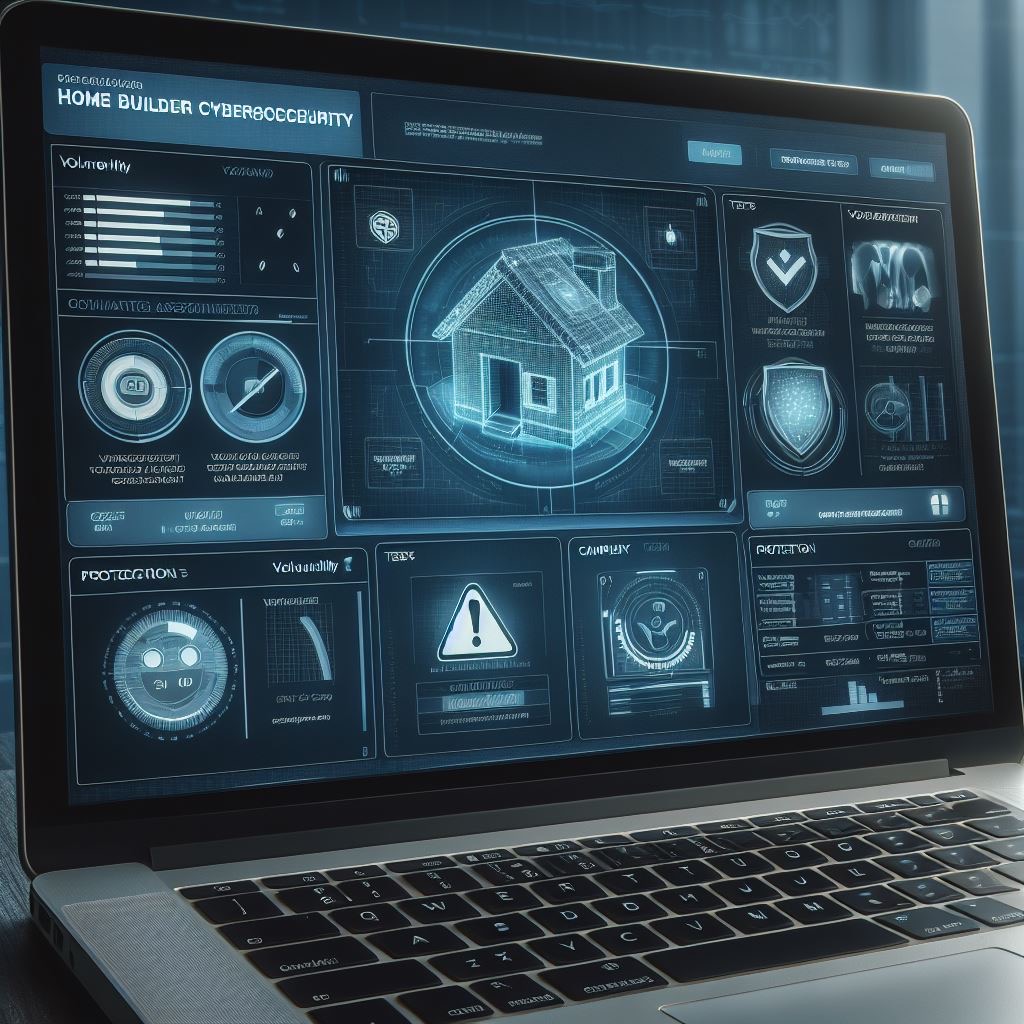
Defying All Odds - Day 13: The Cost of Ignoring Cybersecurity in the Construction Industry
“You have to be prepared to fight and finish your own battles.” - Jim Harbaugh
Introduction:
In today's rapidly evolving digital landscape, the construction industry has become increasingly dependent on technology to drive efficiency and productivity. From project management software to digital blueprints, technology has revolutionized the way construction companies operate. However, this increased reliance on digital tools also brings along a new set of challenges, with cyber threats posing a significant risk to the industry. In this article, we will explore the importance of cybersecurity in the construction industry and shed light on the potential consequences that can arise from neglecting this critical aspect of business operations.
In our previous day's article, we talked about how ZATIS helped a construction company defy the odds by winning the battle against hackers and cybercriminals. Join us as we continue our journey where we explore the latest trends, best practices, and innovative solutions that empower businesses to stay one step ahead of hackers and cybercriminals.
The Cost of Ignoring Cybersecurity in the Construction Industry
The cost of ignoring cybersecurity in the construction industry can be significant, both financially and operationally. In this article, we will explore the hidden costs associated with neglecting cybersecurity measures. From financial losses due to data breaches to reputational damage and legal liabilities, the consequences of ignoring cybersecurity can have a lasting impact on construction companies. By understanding these costs, construction companies can make informed decisions and prioritize cybersecurity to avoid potential financial and operational setbacks.
1. Financial Losses from Data Breaches

Data breaches can result in substantial financial losses for construction companies. The costs associated with data breach response, including forensic investigations, notifying affected parties, and providing credit monitoring services, can be significant. Moreover, construction companies may face regulatory fines and legal settlements if they fail to comply with data protection regulations. The financial impact of a data breach can be devastating, affecting the company's bottom line and long-term sustainability.
2. Reputational Damage

A data breach or other cybersecurity incident can severely damage a construction company's reputation. Clients, partners, and stakeholders expect their confidential information to be protected, and a breach can erode trust and confidence in the company's ability to safeguard sensitive data. Reputational damage can lead to a loss of business opportunities, difficulty attracting new clients, and a damaged brand image that takes time to rebuild. Restoring a tarnished reputation can be a costly and time-consuming process.
3. Operational Disruptions

Cybersecurity incidents can cause significant operational disruptions for construction companies. Ransomware attacks or other malware infections can render critical systems and data inaccessible, resulting in downtime and delays in project timelines. This can lead to financial penalties for missed deadlines and contractual obligations. Additionally, the efforts required to restore systems and recover data can divert valuable resources away from core business activities, impacting productivity and profitability.
4. Legal Liabilities and Regulatory Non-Compliance

Construction companies that neglect cybersecurity measures may face legal liabilities and regulatory non-compliance issues. If sensitive client information is compromised due to inadequate security measures, the company may be held legally responsible for the resulting damages. In addition, construction companies must comply with various data protection and privacy regulations, such as the General Data Protection Regulation (GDPR) or industry-specific requirements. Failure to comply with these regulations can result in substantial fines and penalties.
Conclusion:
Ignoring cybersecurity in the construction industry can have severe financial and operational consequences. The costs associated with data breaches, reputational damage, operational disruptions, legal liabilities, and regulatory non-compliance can have a lasting impact on a construction company's bottom line and overall success. By prioritizing cybersecurity and implementing robust security measures, construction companies can mitigate these risks and protect their business interests. Investing in cybersecurity is not only a prudent financial decision but also a critical step towards safeguarding sensitive data, maintaining client trust, and ensuring long-term business sustainability.

The Importance of Proactive Cybersecurity Measures
To mitigate the risks associated with cyber threats, construction companies must adopt a proactive approach to cybersecurity. Implementing robust cybersecurity measures can help protect the company's assets, maintain client trust, and ensure the smooth operation of projects. Here are some key steps that construction companies can take:
1. Employee Education and Training:

Employees are often the first line of defense against cyber threats. Providing comprehensive training on cybersecurity best practices, such as identifying phishing emails and using strong passwords, can significantly reduce the risk of successful attacks.
2. Regular Security Assessments:

Conducting regular security assessments, including vulnerability scanning and penetration testing, can identify potential weaknesses in the company's systems and infrastructure. This allows for timely remediation before cybercriminals can exploit these vulnerabilities.
3. Secure Network Infrastructure:

Implementing robust firewalls, intrusion detection systems, and encryption protocols can help safeguard the company's network infrastructure from unauthorized access and data breaches.
4. Access Control and Authentication:

Implementing strong access control measures, such as multi-factor authentication and role-based access controls, can ensure that only authorized individuals have access to sensitive information.
5. Data Backup and Recovery:

Regularly backing up critical data and implementing a robust disaster recovery plan can help minimize the impact of a cyber-attack and facilitate the restoration of operations.
Conclusion:
In an increasingly digitized world, the construction industry must recognize the importance of cybersecurity and take proactive measures to protect its valuable assets. Neglecting cybersecurity can have severe consequences, including financial losses, reputational damage, project delays, legal and regulatory compliance issues, and loss of intellectual property. By prioritizing cybersecurity and implementing robust measures, construction companies can safeguard their operations, maintain client trust, and ensure their long-term success in an evolving digital landscape.
Want to know if your construction company is at major risk of getting hacked? Click here for a FREE 15-Minute Cyber Consult.

5 Reasons Your Construction Company Needs a Cybersecurity Risk Assessment. 👊
It is important for construction companies to conduct a cybersecurity risk assessment for several reasons:
1. Protection of sensitive data:
Construction companies handle a vast amount of sensitive data, including financial information, project details, client information, and employee records. Conducting a cybersecurity risk assessment helps identify potential vulnerabilities and ensures appropriate safeguards are in place to protect this data from unauthorized access, data breaches, or theft.
2. Mitigating financial losses:
Cyberattacks can result in significant financial losses for construction companies. These losses can stem from data breaches, ransomware attacks, or the disruption of critical systems. By conducting a cybersecurity risk assessment, companies can identify potential weaknesses in their IT infrastructure and take proactive measures to mitigate the financial risks associated with cyber threats.
3. Maintaining business continuity:
A successful cyber-attack can disrupt construction projects, delay timelines, and impact the overall business operations. By conducting a risk assessment, construction companies can identify potential vulnerabilities and implement robust cybersecurity measures to ensure business continuity. This includes having backup systems, disaster recovery plans, and incident response protocols in place.
4. Protecting reputation and client trust:
Construction companies rely on their reputation and client trust to secure new projects and contracts. A cybersecurity breach can undermine trust, damage the company's reputation, and lead to the loss of clients. By conducting a risk assessment and implementing appropriate cybersecurity measures, construction companies can demonstrate their commitment to protecting client data and maintaining a secure operating environment.
5. Compliance with regulations:
Construction companies may be subject to industry-specific regulations and legal requirements regarding data protection and cybersecurity. Conducting a risk assessment helps identify any gaps in compliance and ensures that the company meets the necessary regulatory obligations.
Overall, conducting a cybersecurity risk assessment allows construction companies to proactively identify and address potential vulnerabilities, protect sensitive data, mitigate financial losses, maintain business continuity, protect their reputation, and comply with relevant regulations.
Other resources to help you get started with Cybersecurity
Start your own Cybersecurity initiative:
Here is a quick checklist to get you started with your Cybersecurity initiative. Remember imperfect action beats inaction, get started and keep pushing for progress and awareness with your people.
Update your software
Secure your files
Require passwords
Encrypt devices
Use multi-factor authentication
Protect your wireless network
Make "SMART SECURITY" your business as usual
Require strong passwords
Train all staff
Have a plan
